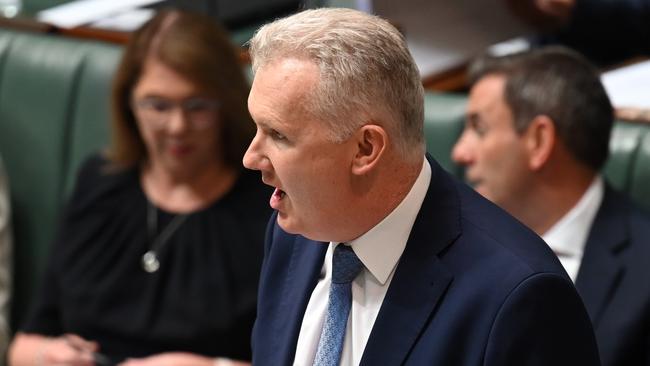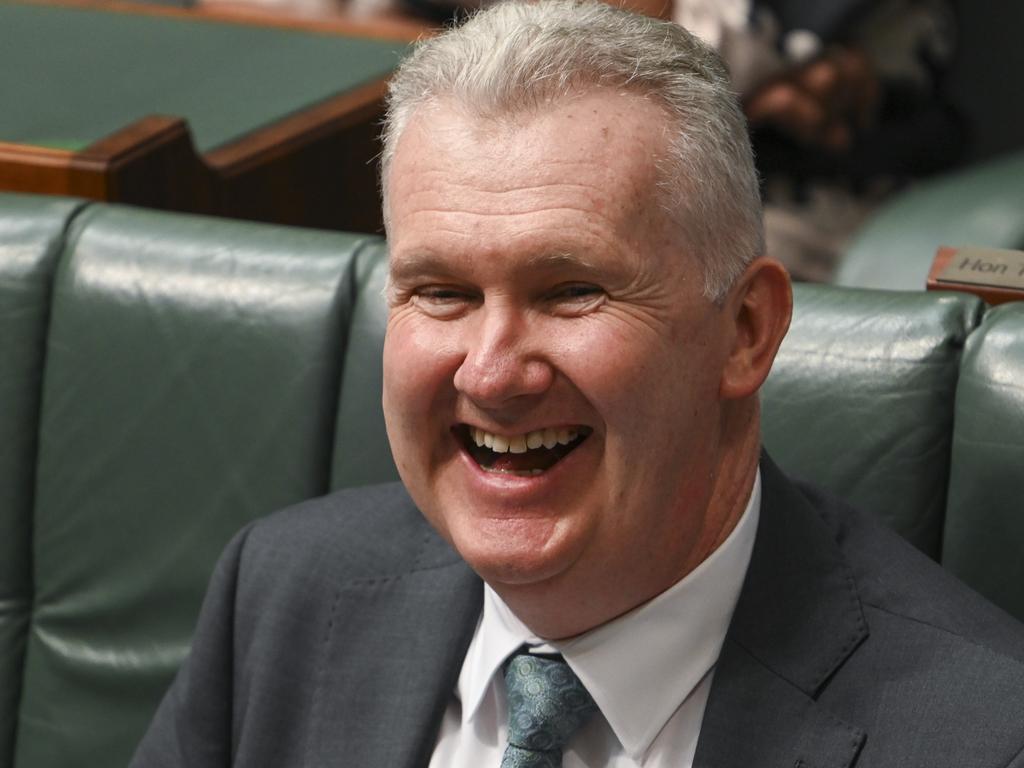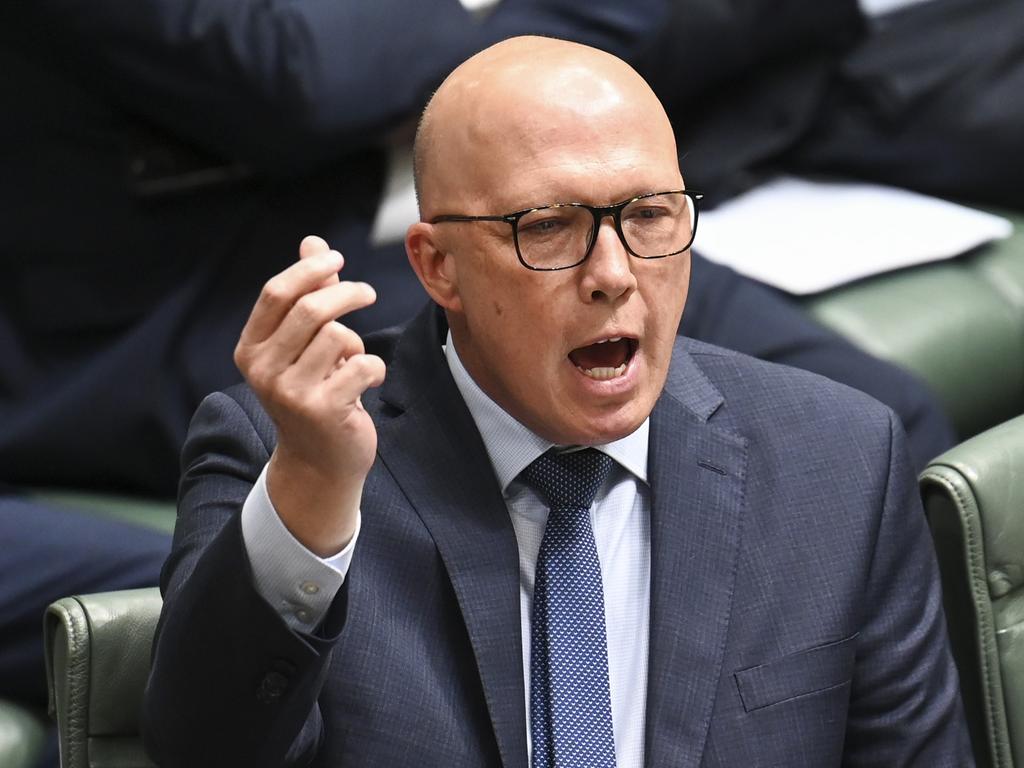11th hour right to ‘turn off’ advice
The Department of Employment and Workplace Relations became aware right to disconnect laws could expose bosses to criminal penalties after being told by advisers from the PMO and Tony Burke’s office.

The Department of Employment and Workplace Relations only became aware the new right to disconnect laws could expose bosses to criminal penalties after being told by advisers from the Prime Minister’s office and Tony Burke’s office on the day of the senate vote.
Appearing at a senate estimates hearing, Agriculture Minister Murray Watt clarified earlier evidence from a DEWR official that she first became aware employers could be subject to criminal penalties after she “had a discussion with an adviser from the Prime Minister’s office” on February 8.
Senator Watt, on behalf of Mr Burke in estimates, said the penalties issue was first raised jointly by an adviser from the Prime Minister’s office and an adviser from Mr Burke’s office before debate resumed on the Closing Loopholes Bill No 2 in the Senate last week.
“It was raised with the department’s officers who were attending outside the senate chamber,” he said. “The amendment was provided by the department to the minister’s office at 1.11pm.”
Criminal penalties for breaching Fair Work Commission orders have long existed under federal workplace law. Under the new laws, if a worker wants to stop unreasonable out-of-hours contact, they can seek to settle the dispute at the workplace level. If that is unsuccessful, they can apply to the Fair Work Commission for a stop order.
The amendments to prevent them applying if an employer breached a right to disconnect stop order were drawn up, but missed the cut-off point, with the opposition refusing leave to introduce them. A separate Bill will be introduced on Thursday.
Opposition employment spokeswoman Michaelia Cash said the failure to exempt criminal penalty provisions would have been discovered much earlier if the government had consulted widely with stakeholders.
Speaking on Sky News, Mr Burke suggested the attitude of employer groups, Coalition politicians and some Canberra press gallery journalists, given their work involved late-night calls, was not in line with the public mood.
“Can I say, it’s interesting, the gap between some of the conversation that’s happened in this building (Parliament House) and you look at some of the research that’s been out there and even the polling that’s happened as to what the community thinks on this issue,” he said.
“The community support for this change is overwhelming. I think it’s partly because in a building like this, or even the people who work for the peak business groups, a lot of our world, and the terms and conditions of our employment does involve late-night calls, does involve messages back and forth.
“… It’s a very different world if you’re someone who’s paid from nine to three and you’re expected to constantly be monitoring your emails out of hours. The way we’ve structured it is: yes, the employer can still reach out to you, but you can’t be punished because you were deciding when it was time off, you were going to have your time off.”








To join the conversation, please log in. Don't have an account? Register
Join the conversation, you are commenting as Logout